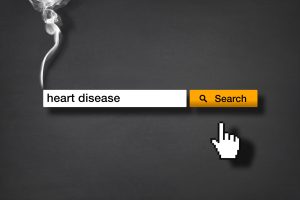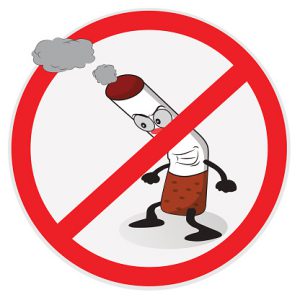 Smoking tobacco products can lead to adverse effects on our cardiovascular health; it is a primary risk factor for cardiovascular disease (CVD), which is the leading cause of death in the United States.
Smoking tobacco products can lead to adverse effects on our cardiovascular health; it is a primary risk factor for cardiovascular disease (CVD), which is the leading cause of death in the United States.
The chemicals inhaled when smoking cigarettes can affect the way our cardiovascular systems function in several ways. This includes:
- Damaging blood vessels
- Causing the thickening and narrowing of blood vessels
- Causing a rise in blood pressure
- Causing an increase in heart rate
- Increasing the risk of blood clots
- Creating a buildup of plaque in the arteries
- Reducing the supply of oxygen used by the body
- Reducing the HDL or good cholesterol in the body
Furthermore, smoking tobacco can lead to the development of life-threatening cardiovascular complications such as:
- Stroke
- Peripheral Arterial Disease
- Abdominal Aortic Aneurysm
- Atherosclerosis
- Heart Attack
Smoking is the most preventable risk factor for cardiovascular disease and complications caused by CVD. You can protect and improve your heart health by quitting smoking. Studies show that smokers can reduce their risk for cardiovascular disease immediately after quitting. Additionally, the risk for heart attack greatly decreases one year after quitting smoking, and within five years of quitting, a smoker can reduce the risk for stroke.
Flushing Hospital Medical Center’s smoking cessation team wants to help you develop a plan leading to your “quit day”. Flushing Hospital has partnered with the American Lung Association to bring you Freedom from Smoking, a comprehensive and successful group-based smoking cessation program.
For more information about smoking cessation programs or to register for our program, call: 718 206 8494
All content of this newsletter is intended for general information purposes only and is not intended or implied to be a substitute for professional medical advice, diagnosis or treatment. Please consult a medical professional before adopting any of the suggestions on this page. You must never disregard professional medical advice or delay seeking medical treatment based upon any content of this newsletter. PROMPTLY CONSULT YOUR PHYSICIAN OR CALL 911 IF YOU BELIEVE YOU HAVE A MEDICAL EMERGENCY.







